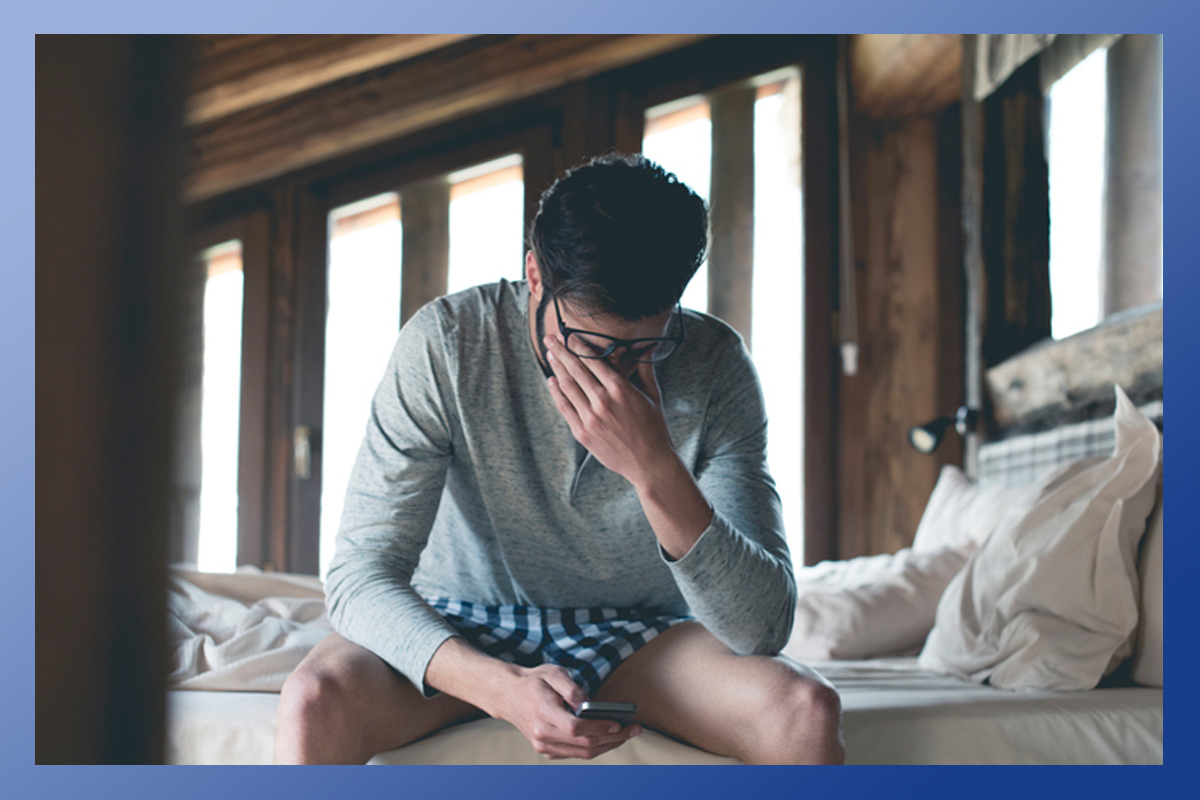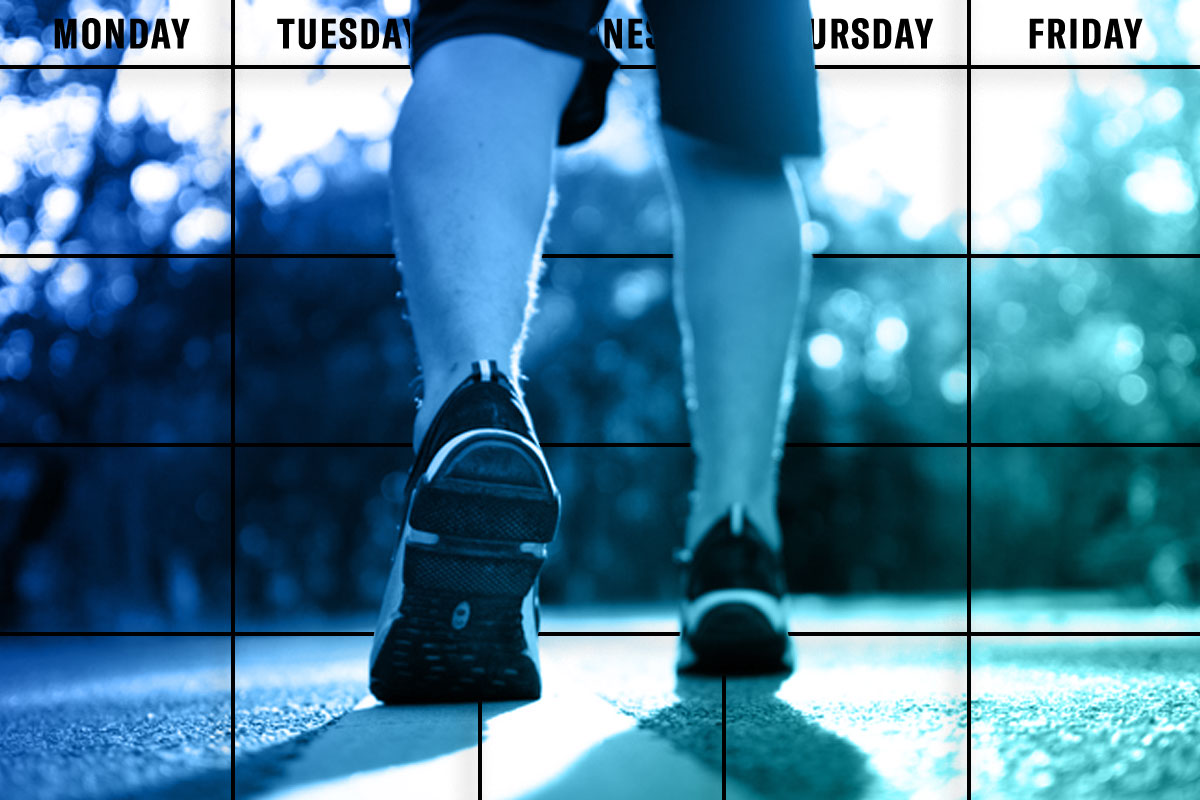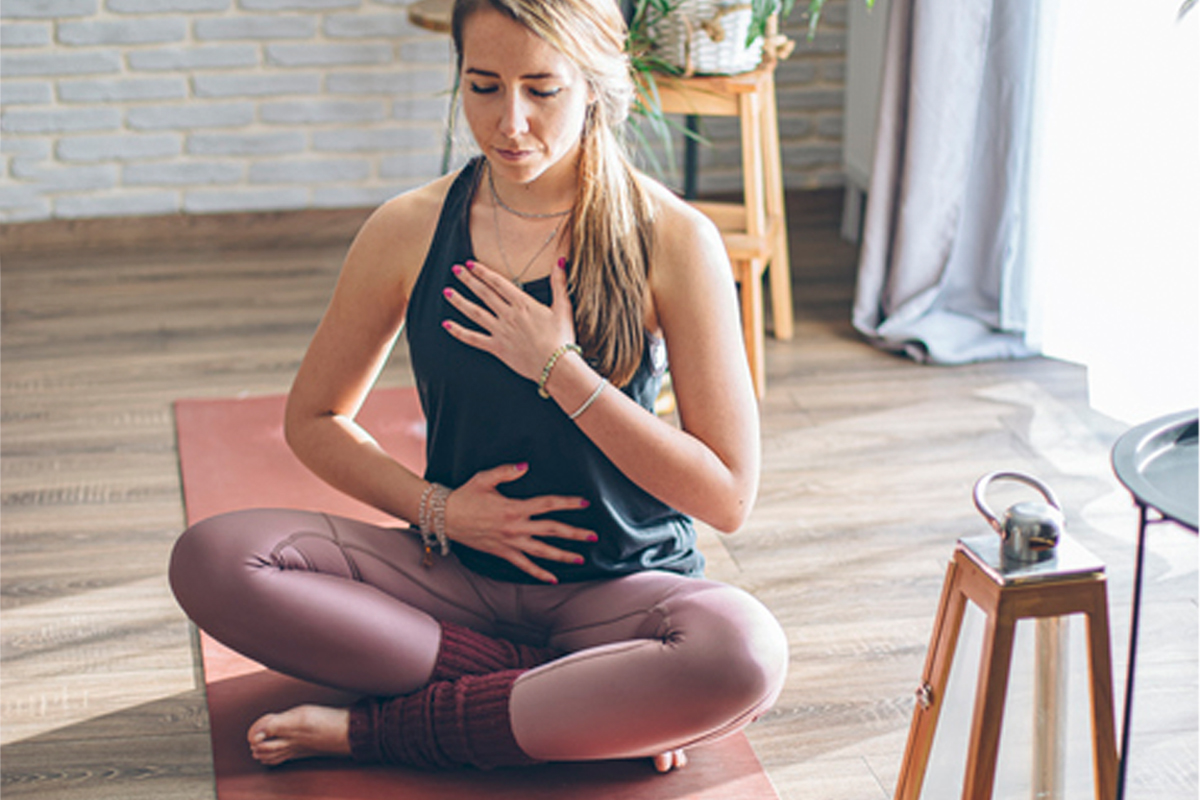Sleep specialist Dr. Meeta Singh shares how more shut-eye can improve your health and your physique.
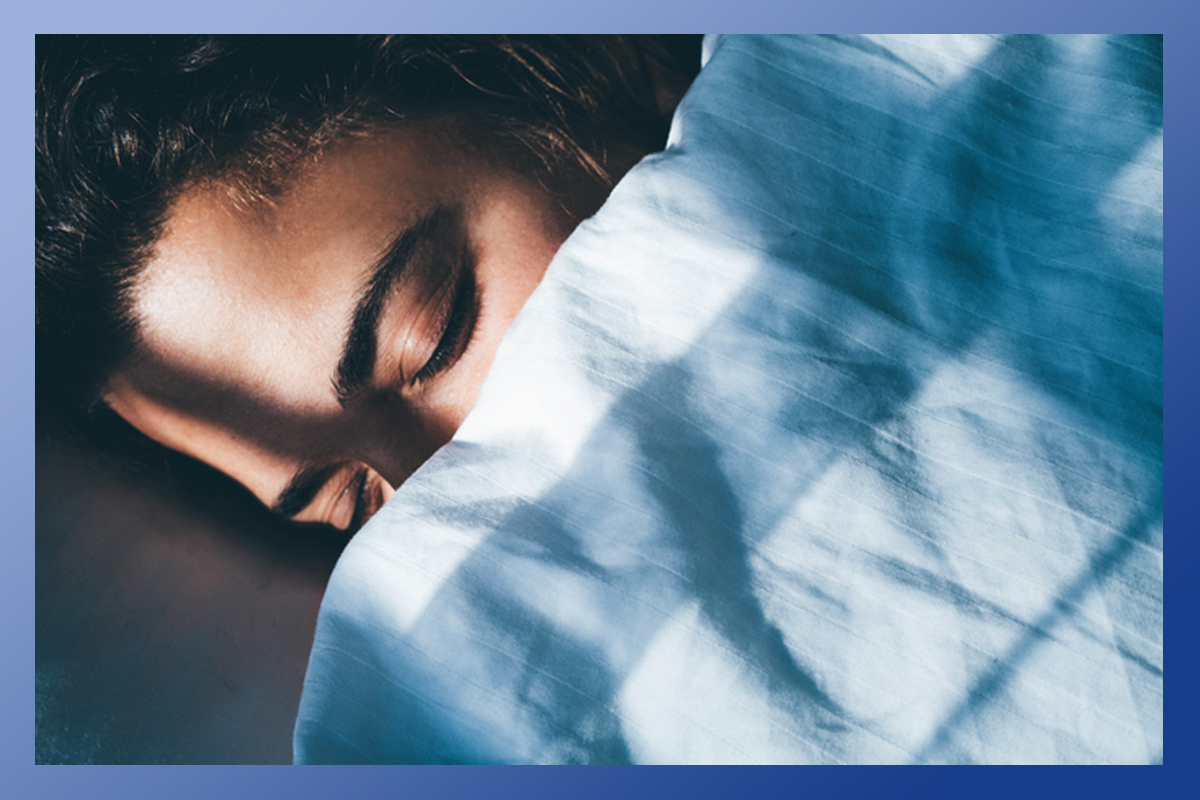
You do it all the time. You work late, or you stay out late at a party, then get up early to get the kids to school or soccer practice. Many of us even boast that we can get by on little sleep, though getting fewer than six hours per night can have long-term, detrimental effects on our health. While it’s not classified as a sleep disorder, Dr. Meeta Singh, a physician and psychiatrist who specializes in the science of sleep, says chronic sleep deprivation is a common problem. And, if you’re not getting the seven to nine hours recommended for adults by the National Sleep Foundation, it’s likely a problem for you.
“When you wake up in the morning, you should feel alert and ready to face your day,” she says. “Getting enough sleep leads to a happier, more fulfilling existence.” It also has been scientifically proven to improve your physical and mental health. Here, Singh explains why getting enough sleep is so important, no matter where you are on your fitness journey.
Sleep Promotes a Healthy Body Composition
Since the beginning of the Industrial Revolution and the invention of the light bulb, people have slept less and less by the decade. And as reported sleep duration has decreased, incidence of obesity has increased. Those who don’t get enough sleep are more likely to increase their food consumption, and more likely to choose fatty, high-calorie foods, which leads to a higher waist circumference.
Singh explains that during sleep, our bodies secrete the satiety hormone leptin, which decreases our appetites. When we don’t get enough sleep, levels of the hormone ghrelin increase, sending hunger signals to the brain.
In one study, healthy college students were deprived of sleep. “Their ability to metabolize glucose and their insulin sensitivity both decreased,” says Singh. “Cortisol levels increased, along with their ratings of hunger and appetite. And they were eating significantly more calories, in the form of carbohydrate rich, fatty foods.”
Lack of sleep also decreases activity levels. If you don’t get enough sleep, you’re too tired to work out the next day. You reach for caffeine to stay awake, which prevents you from sleeping again the next night, which causes you to miss a second workout. “It’s a vicious cycle,” Singh says.
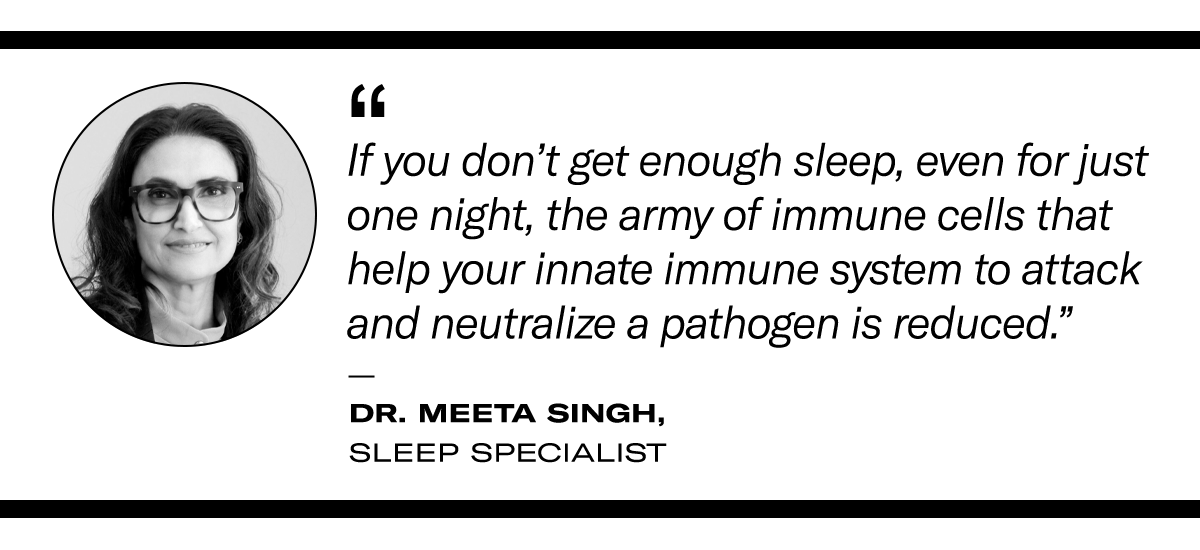
Sleep Can Improve Your Mental Health
Historically, sleeping problems were seen as a consequence of mental health issues, but we now know that the relationship between sleep and mental health is bi-directional: Sleep affects your mental health, and your mental health affects your sleep. This may seem obvious; if you’re anxious, and your mind begins to race, it is difficult to sleep. But an inability to sleep can also make you more anxious.
“Poor sleep or difficulty initiating and maintaining sleep is predictive of depression, anxiety, substance abuse, and suicide,” Singh says. “If you don’t address the sleep side of things, the mental health issues become more difficult to treat.”
Conversely, improved sleep leads to overall better mental health. Singh further explains that sufficient sleep, specifically REM sleep, is important for adding emotional context to memories. This helps you cope with difficult experiences, while lack of REM sleep can lead to changes in mood.
Sleep Is Essential for Building and Repairing Muscle
You might not see strength gains you are working toward if you don’t get enough sleep. When we exercise, small tears are created in our muscles. Our bodies repair these tears, causing our muscles to grow and get stronger. Our bodies need human growth hormone to make these repairs, and up to 70 percent of our HGH is released during sleep.
“There is clear-cut proof that your muscles and your cardiovascular system—your heart and lungs—recover while you’re asleep,” Singh says. “It’s that recovery that prepares you for the next day, and for your next workout.”
Singh also explains that inadequate sleep decreases reaction time, accuracy, and judgment, which makes you more likely to be injured during your next bout of exercise. And if you do hurt yourself, adequate sleep is necessary for an efficient inflammatory response, which facilitates healing.
Sleep Strengthens the Immune System
Ever notice that you tend to get sick after pulling all-nighters? Sleep plays an integral role in maintaining efficient immune function. “If you don’t get enough sleep, even for just one night, the army of immune cells that help your innate immune system to attack and neutralize a pathogen is reduced,” says Singh. Sleep enhances the ability of T cells to adhere to and destroy cells infected by viruses and other pathogens, and those who get less than six hours of sleep per night are four times more likely to catch a cold. Studies have also shown that getting proper sleep after vaccinations for illnesses like hepatitis and flu can enhance your antibody response and boost your body’s defenses.
Singh also points out that just as sleep consolidates our memories, it also consolidates the memories of the cells of our adapted immune system. While we are awake, our immune cells take in information about specific pathogens. While we are asleep, that information is encoded and transferred to other immune cells that can retrieve the stored information if the body ever encounters the pathogen again. “Sleep helps us create smart immune cells that know what to do,” she says.
Hitting your nightly sleep goals can improve your overall health and fitness. If you struggle to log enough hours in bed, here are eight expert tips to get more restorative sleep, as well as foods you can try to fall asleep easier.
